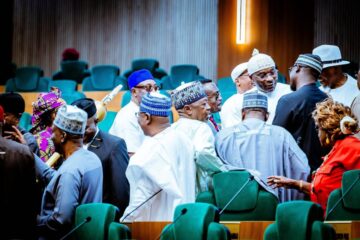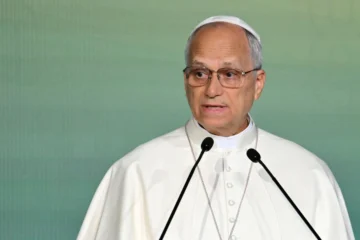Doctors in England go on strike over pay dispute

Thousands of junior doctors have gone on strike across England as the dispute with the British Government over pay continues.
The 72-hour walkout by medics who can have up to eight years of experience as a hospital doctor or three years in general practice, ran until 7am (0600 GMT) on Saturday and is expected to lead to thousands of National Health Service appointments and operations being cancelled.
This came as NHS chiefs warned that the number of people seeking emergency help would rise as the hot weather continued across the UK.
NHS leaders have said that urgent and emergency care would remain the priority.
The strike is the third this year by junior doctors and is expected to cause mass disruption.
There have also been concerns about staffing, with some consultants saying they would not provide strike cover unless their employers agreed to a higher overtime rate.
The British Medical Association is calling for “full restoration” of pay, which it says has seen a 26 per cent cut.
The Government has offered 5 per cent to end the dispute.
Dr Vivek Trivedi and Dr Robert Laurenson, co-chairmen of the BMA junior doctors committee, said in a statement that “Junior doctors are in despair at this Government’s refusal to listen.
“It should never have taken two whole rounds of strike action to even put a number on the table.
“And for that number to be a 5 per cent pay offer in a year of double-digit inflation, itself another pay cut beggars belief.
“We have made clear that junior doctors are looking for the full restoration of our pay, which has seen a 26 per cent cut.’’
The junior doctors in England had seen their pay cut in real terms by more than a quarter over the last 15 years.
“Today, they are demonstrating what that means to the survival of the NHS.”
A BMA poll of 1,935 junior doctors in England, published on Wednesday, found 53 per cent are making plans to leave the NHS.
The poll also said the doctors were thinking of leaving as a result of the Government’s response to industrial action.
Some 67 per cent do not think the NHS, in its current form, would exist in 10 years and 88 per cent expect the NHS to get worse over the next 18 months.
BMA chairman of council, Prof. Philip Banfield, has written to Prime Minister Rishi Sunak, urging him to intervene in resolving the dispute.
Health and Social Care Secretary Steve Barclay said it was “extremely disappointing” that the BMA was going ahead with further strike action.
He said: “This 72-hour walkout will put patient safety and our efforts to cut waiting lists at risk.
“During recent meetings with representatives of the BMA junior doctors committee, we made a fair and reasonable opening offer and were discussing both pay and non-pay issues until they chose to end the talks by announcing new strike dates.
“If the BMA cancels these damaging and disruptive strikes and shows a willingness to move significantly from their positions, we can resume confidential talks and find a way forward, as we have done with other unions.”
Doctors would join picket lines outside their hospitals on Wednesday and the BMA would also hold rallies throughout the rest of the week.
This would include Oxford, Birmingham, London and Manchester in the rallies.
Earlier this week, Prof. Sir Stephen Powis, NHS England’s national medical director, said almost all routine or pre-planned care could be impacted in some way by the latest strike.
A similar walkout by junior doctors in April saw 196,000 hospital appointments and pre-planned operations rescheduled.
Speaking on Wednesday, he said: “The NHS is facing significant disruption this week with a three-day strike that is set to be exacerbated by the ongoing hot weather.”
The numbers of people seeking emergency care were on the increase as temperatures rise.











